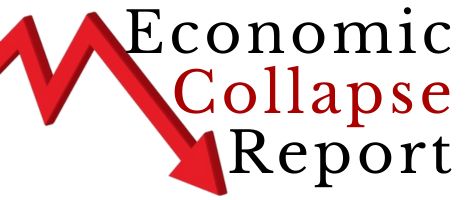The WEF has picked up the UN globalization batons and populated the stakeholder table not with “member nations” but “partner corporations” to effect its hellish hierarchy, aping population growth fears and targeting food as “currently responsible for up to one-third of global greenhouse gas emissions, 70% of all freshwater withdrawals, and … the main driver of deforestation and biodiversity loss.” The unchallenged claim that “low productivity and inefficient food supply chains” are “pushing up the cost of nutritious foods” is then leveraged as cause to “urgently” transform all food production and consumption, and transition to a net-zero economy:
We need to fundamentally transform our food systems to provide all humanity with affordable, nutritious and healthy food within the limits of nature by 2030, in line with the United Nations Sustainable Development Goals (SDGs) and the Paris Climate Agreement. Achieving this transformation within a decade requires us to rapidly re-think and reshape our global food systems. Success rests on millions of smallholder farmers adapting to sustainable practices, billions of people improving their diets, and an ecosystem of actors that can enable transitions. This will demand an unprecedented level of regional and country action, supported by global leadership and underpinned by multiple integrated programmes and large-scale initiatives to leverage technology, streamline value chains, and adjust market systems.
The “we” in this statement refers to corporate profiteers, not Amazonian hunting tribes who have not asked for globalist corporate rescue. This is a prescription for total food domination, the “success” of which “rests” on smallholder farmers who must be incentivized or regulated into compliance with “sustainable practices” that are almost entirely dependent on GMOs, synthetic fertilizers, pesticides, and other chemicals. That “rescue package” (financed favorably by those who want to save the world with equitable lending) is buried in the fine corporate print, but it is indeed the globalist plan – more of the same poisons as cure for their poisons.
The WEF will help eliminate meats, claiming in “Creating a Vibrant Food Innovation Ecosystem through Alternative Proteins” that
Nations around the world are becoming aware of the benefits of prioritizing alternative proteins to meet their climate, biodiversity, food security and public health goals. With global meat consumption projected to increase by at least 50% from 2012 levels by 2050, alternative proteins – including plant-based and cultivated meat – offer a globally scalable solution to the issue of how best to transform global food systems as the planet warms.
Cultivated meat is a fantasy that has made billions for corporate profiteers, but not a tablespoon of affordable food for the impoverished or a single job for a farmer. It has not been developed to scale, and cannot be produced at cost. The WEF here ignores the enormous environmental costs of making the stuff – vats, tubes, technologies, plastics, heated (and cooled) buildings, the factories themselves. Like so-called renewables manufacturing, don’t those externalized chemical and fossil fuel costs contribute to the problem allegedly being solved? Aren’t they all far worse than the greenhouse gases (or in this case, cows) they purport to improve upon?
The high-sounding WEF proposal to create “a robust, highly collaborative food-tech innovation environment focused on shared value – a space that can produce scientific breakthroughs, launch and support public–private sector partnerships and create a thriving bioeconomy” is a sleazy corporate scam. Corporations have had way too much “space” to destroy farms and soils with their “scientific breakthroughs,” and “public-private sector partnerships” are also known as fascist alliances when they seize control of individuals and their rights (or food supplies). The innovations needed to protect the environment are local farmers employing regenerative methods, not corporate consolidation, or yet more gadgets in lieu of agricultural stewardship. […]
— Read More: granitegrok.com


